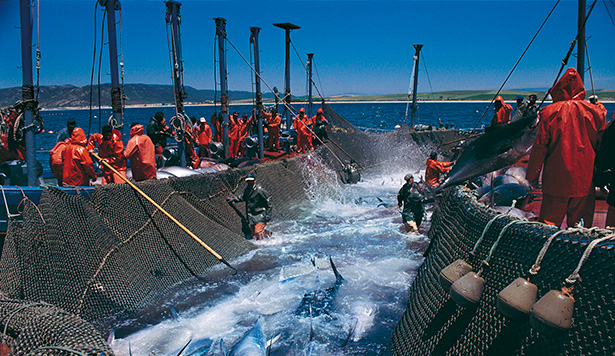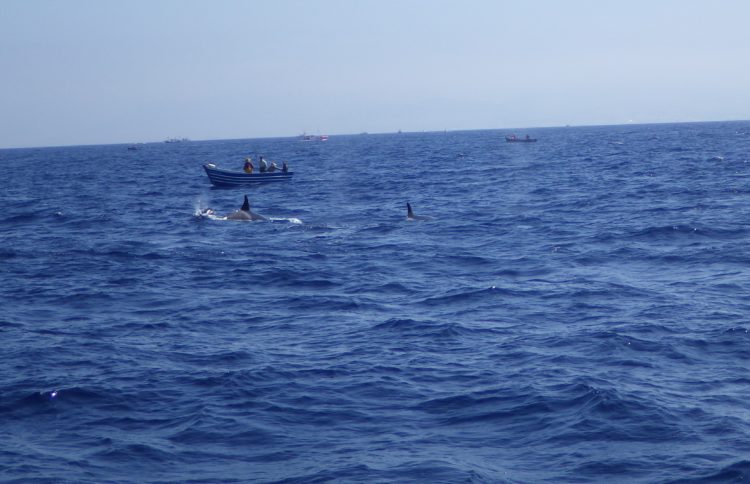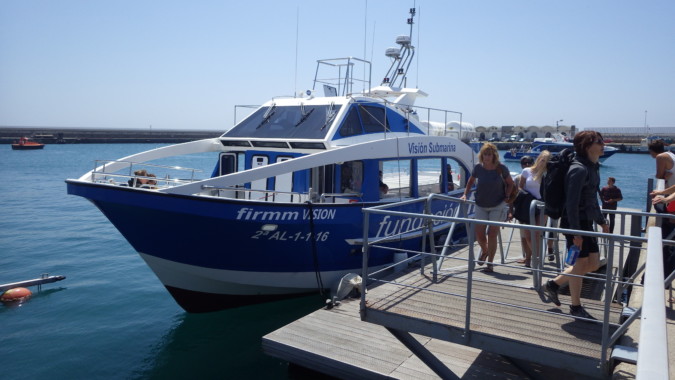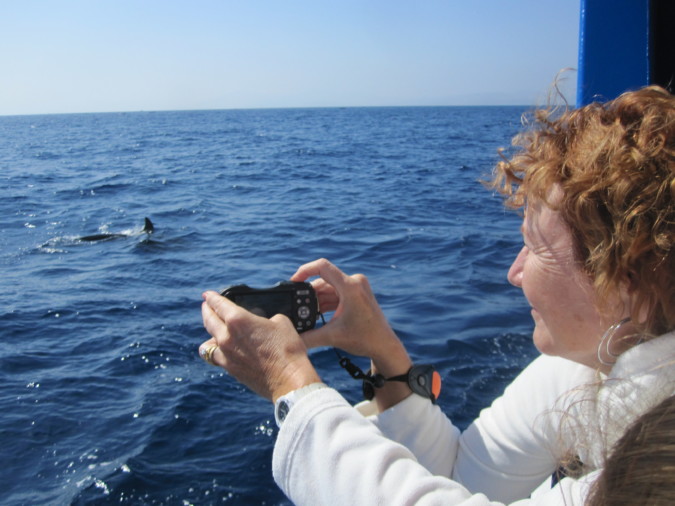No, not Iron Chef vs. Gordon Ramsey or any such nonsense; real wars between tuna fishermen in the Straits of Gibraltar and the orcas that come to feed when the tuna are running. Did I mention we were in Spain?
We met our friends Teresa and Pablo at Meerlust Las Ballenas, a luxury B&B in Los Canos de Meca, on the southern coast of Spain fronting the Atlantic, just across from Morocco in Northern Africa. The Costa de la Luz is an area not as crowded and touristy as the Costa del Sol, and most of the visitors are Spaniards from the north, cities like Madrid, Seville and Jerez. The beaches are beautiful and certainly interesting, as nudity is quite common, and I’m talking more than just topless.
I’m sorry, but there are body parts that should #1, never risk sun exposure and #2, never leave the house unclothed. And I can now say I’ve seen them all. In varying shapes and sizes. There are things, actually, that I wish I could un-see.
When we arrived we were told the tuna were running, but unlike the Almadraba, the old traditional tuna fishing technique of multiple fishing boats encircling the tuna with nets and creating a frenzy of fish and a dangerous job for the fishermen, these fishermen were long-line fishing, catching one tuna at a time.
The orcas, who are both smart and opportunistic, wait for the fishermen to hook a tuna, and when the fish is tired and closer to the surface the orca strikes, but bites just below the head so as to avoid the hook. Like I said, smart and opportunistic. So the fishermen go on the Spanish version of the Nantucket sleigh-ride, being pulled by the orca as they fight over the tuna on the end of the line. Generally the orca wins.
Our whale watching tour was on a boat from FIRMM, the Foundation for Information and Research on Marine Mammals. I was impressed by this organization, as their work has informed the Spanish and Moroccan governments on the quantity and types of large mammals that exist and thrive cyclically in the Straits of Gibraltar, and have thwarted the ferry routes that would disrupt this activity. Climate change and overfishing have already diminished the numbers of mammals annually. Obviously we don’t want to add to the demise of our aquatic mammals, so I’m happy to support any organization that supports this work.
As with any whale watching activity, we can’t be guaranteed a great experience. I’m happy with under promise and over deliver, which was certainly the case this day. We had orcas on both sides of the boat, under the boat, jumping in tandem, pulling Moroccan fishing boats, and teaching their young how to screw a long line fisherman.
Click on image to view full size
It was thrilling, amazing and intense. And while I felt badly for the fisherman I had a blast. The tuna? They were going down one way or the other. I’m kinda happy to be higher up on the food chain and to be able to eat the tuna dishes in Southern Spain. They waste nothing. Tuna belly? You betcha. Tuna neck? Absolutely. Stay tuned for more food related posts from the trip. And as far as the food chain goes, we pulled our legs up off of the sides when the orcas swam at the boat. No sense taking any chances when we still had tuna to eat. And olives. And bread. And don’t get me started on the wine…
















Dear Cousin Deb,
Thanks for your fascinating report re your experience in Spain and the struggle between Orcas and man over tuna. We visited Spain a few years ago and thoroughly enjoyed the experience, especially visiting the Alhambra, sampling garlic soup, eating olives (who knew that fresh olives could taste so good) and sampling delightful Spanish wine with a variety of tapas. We visited a donkey sanctuary would you believe and fed several donkeys, some greedy pot-bellied pigs and a sad-looking pony. We stayed at an apartment in Nerja a small town far along the Costa del Sol. A great place to explore, eat and relax. Spaniards know how to enjoy life.
Love, Bob
Love, Bob
Dear Deborah, dear Steve,
It was such a pleasure to meet you both at our guesthouse Meerlust-Las Ballenas this month! Thank you for your lively article about your trip and whale-watching experience, you definitely made the most of your stay here and I’m happy you enjoyed your vacation so much. Next time I’ll make sure to suggest some more exceptional places to visit 😉 In the meantime I am looking forward to read more of your blogs and will now order your books too, which I will share with our future guests of course.
Hasta pronto, enjoy your summer! – Colette